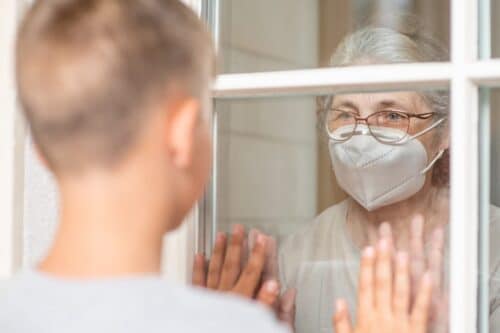Aging in Place: COVID-19 Death in Context
“The combination of realizing our distinctiveness along with our unity is seeing interdependence.”
~Sharon Salzberg, Real Love: The Art of Mindful Connection
Aging in Place
There is much debate around who should get prioritized when it comes to getting COVID19 Vaccinations. The arguments seem to revolve around two common denominators of Economics vs. Humanity. Some will argue economics is humanity, this camp privileges politicians who favor opening the economy despite the risks. Vaccinate the “essential workers”, teachers, and younger people in favor of other groups including older adults and the “disabled.” There are valid points to made for this stance and we have all heard them–they emphasize economic impact. And to that I say, humanity is economics–let me unpack this beyond semantics.
In a pandemic filled with grim statistics, one of the grimmest has gone largely unnoticed: 95 percent of COVID-19 deaths in the U.S. have occurred among people who were 50 or older.This even though the majority of coronavirus cases have been reported in people under age 50.
~ Rachel Nania, AARP, October 30, 2020
I have heard people say, why vaccinate old people? Aren’t they close to death anyway? Elders may die in isolation, but they are hardly without life’s tentacles attached to others. People seldom die context-free, by this I mean without emotional, legal, material, familial, and other bonds. Death of a loved one is labor intensive on a myriad of levels. For those of you who have lost a loved one know all too well, there are legal issues to work out with wills and inheritance, which leads you down the rabbit hole of various other family members all with agendas and ideas of how things need to proceed and end.
Then there is the house, all the accumulations of a lifetime, is there a spouse that will need extra attention? The funeral arrangements need to be made, the taxes done, the home might need to be sold, is long term care in the future of the survivor? What to do with beloved orphaned pets? All the unpaid bills, who is going to follow that labyrinth of unopened envelops and cancel each one-by-one?
The list of things that must be done to close out a life is like stringing beads with out a knot on the other end–it is endless. The surviving family members are often the ones onto which this titanic responsibility lands. And what adds to the complexity are the emotional components ranging from guilt to inconsolable grief that can drain any lifeforce energy needed to accomplish all the tasks. Here is the kicker, these individuals left behind are often in the workforce, raising kids, and navigating all the challenges of modern life, the mental and physical attention required to tackle these issues means temporarily exiting those roles.
So, the bottom line is an older person dying of COVID19 upsets the delicate balance of multiple other lives–and in purely economic terms this takes its toll in terms of days away from a job, child education, shopping, or whatever other vital societal roles the grieving loved ones play.
There are unintended consequences (systems thinking) to a COVID-19 Death in context.
Humanity is the economy…
________________________________________________________________________________________________
COVID-19 Vaccine: Helps protect you from getting COVID-19

